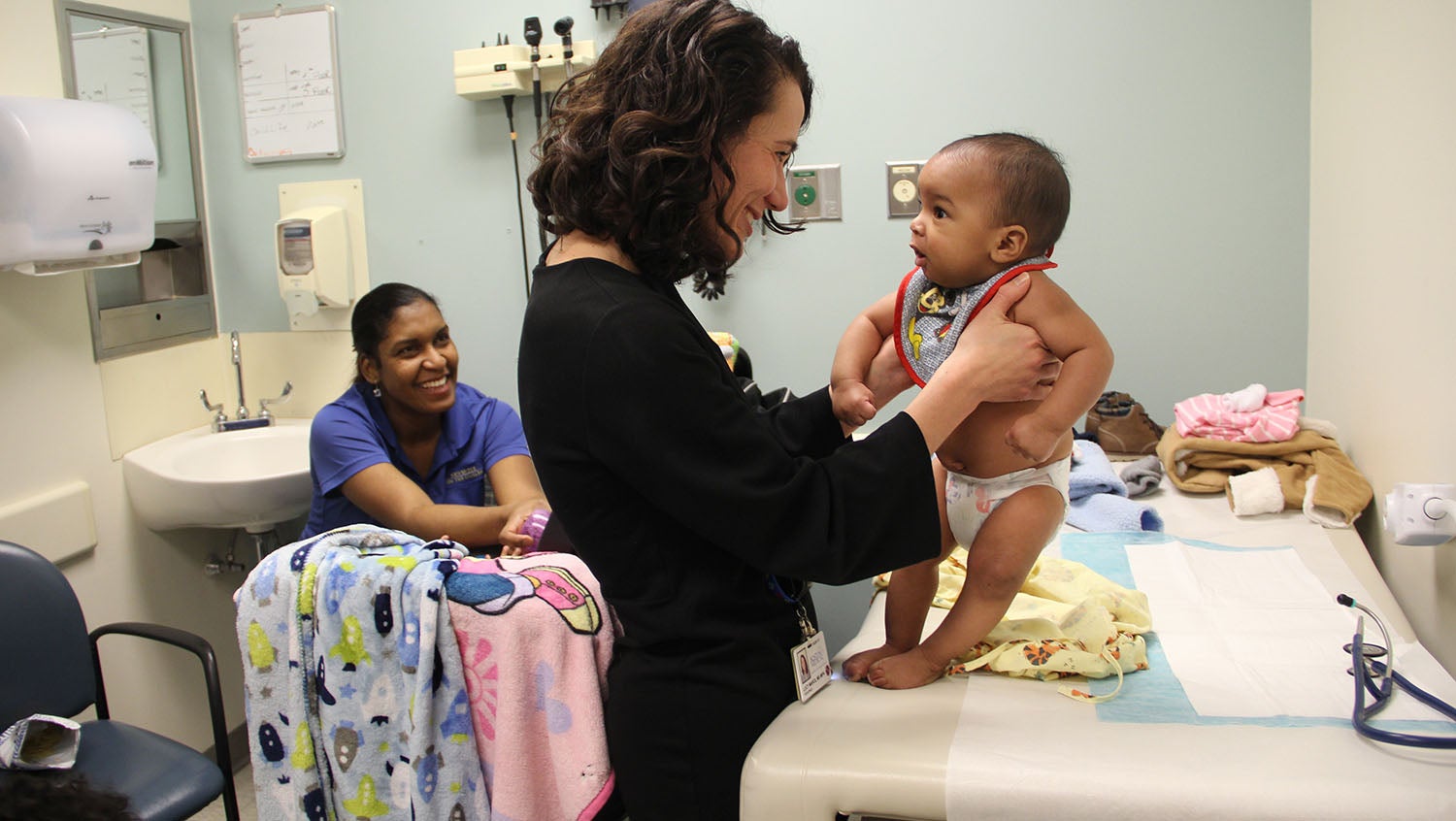Pediatric Care Should Address Families' Actual Needs
May 14, 2019

Matthew Morris
Pediatricians know social determinants greatly influence child health, but we rarely address them in well visits. It's time to rethink the standard of care.
Our country has changed over the course of generations; many pediatric practices were built around addressing issues that aren’t as salient as they once were. Advancements in preventive health measures, like antibiotics, vaccinations, and even seatbelts, have changed the scope of what health issues are most significant for children today.
As pediatricians, our goal is to build healthy children. But even when we follow standards of care to a T, we may not be giving our patients the help they really need.
Current pediatric training and practice leaves many pediatricians stuck in a certain framework. We’ve been taught that we must address a checklist of items: toilet training, sleep, juice consumption, bike helmets— and if we’re not doing that, then we’re not doing our jobs. And yet, how many children’s lives are truly changed because a pediatrician asked about constipation? I’m not discounting the importance of these topics; each is a valid concern. But I’ve felt parents’ eyes glaze over when I run through the checklist of questions.
Part of my perspective, which may be controversial, is maybe we don’t have to talk about the checklist.
Reimagining pediatric care for today
I’ve uncovered parents’ real concerns when I’ve abandoned the checklist and instead asked questions like, “What are you most worried about for your family right now?” and “What’s causing you the most stress?” One parent told me finances were stressing her out so much that she had called the suicide hotline the night before. Put that way, it’s hard not to admit that financial strain falls under our jurisdiction as care providers.
That’s because in today’s era, social problems are the main driver of poor health for children. The buckets of care that we address in primary care visits shouldn’t be restricted to diet and toileting. We should be talking about financial stability, trauma, racism. To keep making progress, we must address issues like poverty and low income (income less than 200% of the federal poverty level) — which combined affect 40% of children in this country.
There is no medical condition as prevalent in kids as financial instability. It’s one of our biggest problems.
Pediatricians know social problems are some of the main drivers of child health, but we’re struggling with how to address them. There are a million things we can talk about with families — I’m interested in how, in a strengths-based way, we can work with families to identify which ones are most salient for them.
Understanding patient needs
Medicine and pediatrics are traditionally very paternalistic. We teach families how to put their baby to sleep, how to keep them safe while they sleep, how to feed them their vegetables. The conversations convey, I have the answers and this is what you need. But when a mom comes in, traumatized because she and her child just watched her nephew get shot on the street — is it really relevant to talk about broccoli that day? Probably not.
Many programs intended to help families can cause more strife, too. Moms have relayed to me the vicious cycle of poverty in which they qualify for assistance programs, then get a leg up only to have their benefits adjusted or revoked when they start earning more money. They’re left right back where they started, or worse. “Even though I’m making a little bit more money, I’m now responsible for giving out more,” one parent explained.
When a parent is budgeting $119 to cover food, diapers, and wipes, the last thing on their mind is fresh vegetables at every meal. When they’re sharing a room with another family of three in a shelter, they can’t possibly imagine following the “cry it out” method with their child. Maybe we can make more progress by listening to families and having them tell us what is relevant to them right now and what we need to help them with for their health.
Especially in an era of accountable care, how well patients feel listened to and how well they feel like their doctor understands and is trying to meet their needs are critical pieces.
Adopting new standards of care
StreetCred is an in-hospital tax preparation service built out of a suggestion from a parent and designed to help put money back in families’ pockets. It’s one way to reimagine pediatric care and think more creatively about what a “medicine” for problems could be. We have some early data that patients are more likely to say they feel connected with their doctor when they get this service. It’s not just that families like it — clinic staff have told us, and we have a paper published in Pediatrics about it, that being able to prescribe StreetCred makes providers feel like they’re doing their job better.
Lucy Marcil, MD delivers a TED Talk on the importance of discussing money with families and on the value of tax preparation as a tool for building financial stability and ultimately, health.
Many of our current collaborators, such as Leslie Sude’s team at Yale, are visionary, doing it because they want to try something new and innovative. But my hope is there will be a point at which it won’t be something innovative anymore. Ideally, national organizations like the American Academy of Pediatrics will adopt policy statements saying that providing financial services — including tax preparation — should be standard of care in pediatric well-child settings. If we’re successful, we won’t need StreetCred to push financial wellness services forward anymore, because we will have built a movement and it will have already become the norm.
I’m in this to keep pushing the envelope, to see how else we can help children and their families. We have to reimagine which topics are pertinent during a doctor’s visit, objectively identify drivers of poor health, and then address those issues. StreetCred is an example of how we can do that within the financial bucket, but there are other buckets in which we need to innovate. Much progress has been made, and there’s potential for so much more.


